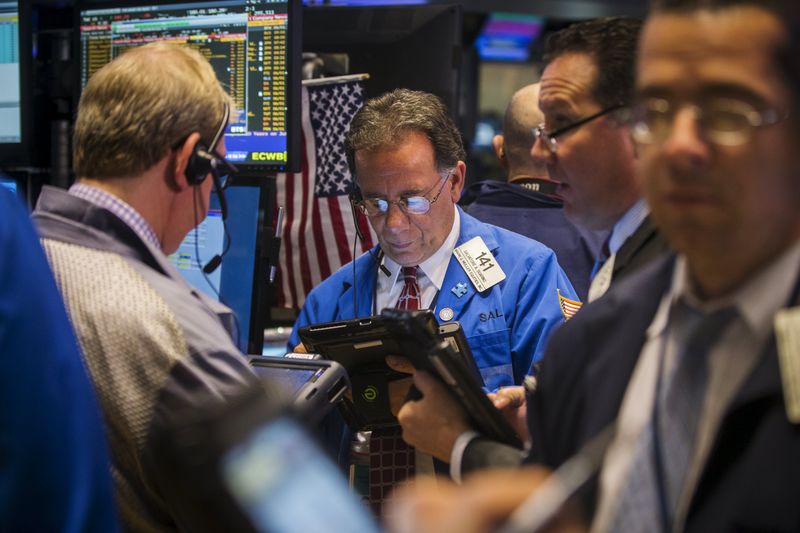By Ashley Lau
NEW YORK (Reuters) - The U.S. stock market has been strangely calm this year, much to the chagrin of investors who have been betting billions on volatility.
The CBOE Volatility Index, or VIX, is down about 30 percent year-to-date, even though some investors have been expecting a rockier stock market as the Federal Reserve gets ready to raise interest rates and the six-year-old bull market ages.
"Right now volatility is at that level because no one is talking in panic terms," said Andrew Wilkinson, chief market analyst at Interactive Brokers Group in Greenwich, Connecticut.
Year-to-date, roughly $1.9 billion has flowed into ETFs wagering on a rise in volatility, while some $1.1 billion has flowed out of ETFs betting on a drop in volatility, based on a Reuters analysis of FactSet data. Investors have been punished for those decisions.
The biggest long volatility-focused ETF, the iPath S&P 500 VIX Short-Term Futures ETN, for example, has attracted $766 million in new investments this year - while it is down about 40 percent. At the same time, money has been flowing out of ETFs that bet on low volatility. The VelocityShares Daily Inverse VIX Short-Term ETN, for example, is up 45 percent this year but has had $680 million in outflows.
PAYING UP FOR EXPOSURE
Much of the money flowing into volatility ETFs likely comes from professional investors who are using them to hedge their long bets and may be jumping in and out of them. George Soros' hedge fund, Soros Fund Management LLC, for example, held shares of the iPath S&P 500 VIX Short-Term Futures ETN at the end of the first quarter, according to the fund's quarterly regulatory filings.
But those plays come at a price, especially for retail investors who tend to keep positions for longer periods of time.
"Retail investors tend to use these things as a gambling product," said Cory Burnell, chief investment officer of California-based BluePrint Wealth Partners, while institutional investors may employ a more sophisticated hedging strategy, .
"If you're betting on a spike in volatility, you'd better be right pretty quickly," Burnell said. "If you're wrong, you're going to get eaten up. It's an expensive bet."
That is because these funds are constantly replacing expiring futures contracts with new ones. When the new contracts are more expensive than the ones being sold (a situation called contango in the futures markets), the funds lose money on both ends of that transaction.
Contango is currently at about 8 percent, which means that investors buying a long VIX fund would need the VIX to rise more than 8 percent to hit a positive return.
In addition, the funds cost more than a typical stock or bond exchange-traded fund, with the VXX ETF, for example, charging 0.89 percent of assets per year in management fees.

"People have a higher fear of what's going to happen than what actually happens and therefore they're willing to pay for insurance," said Mike Venuto, chief investment officer at Toroso Investments. But he noted, "Volatility is not something that's sustainable."